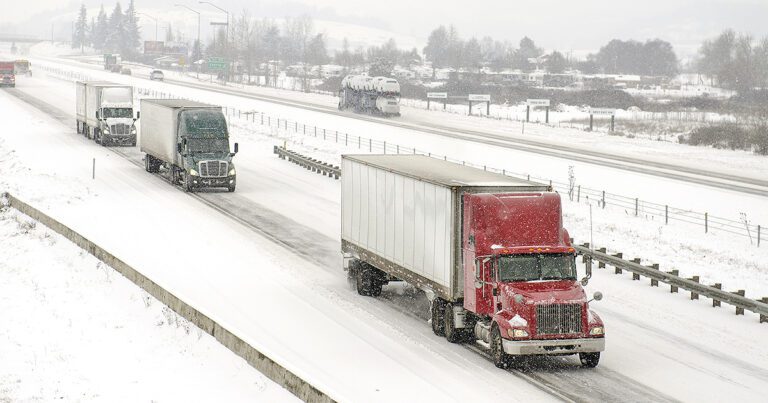WASHINGTON — The Federal Motor Carrier Safety Administration has issued an Emergency Declaration for the movement of heating fuels in response to severe winter and high demand for propane, natural gas and heating oil.
States affected by this emergency are:
- Alabama
- Arizona
- Arkansas
- California
- Colorado
- Connecticut
- Delaware
- District of Columbia
- Georgia
- Idaho
- Illinois
- Indiana
- Iowa
- Kansas
- Kentucky
- Louisiana
- Maine
- Maryland
- Massachusetts
- Michigan
- Minnesota
- Mississippi
- Missouri
- Montana
- Nebraska
- Nevada
- New Hampshire
- New Jersey
- New York
- North Carolina
- North Dakota
- Ohio
- Oklahoma
- Oregon
- Pennsylvania
- Rhode Island
- South Carolina
- South Dakota
- Tennessee
- Texas
- Utah
- Vermont
- Virginia
- Washington
- West Virginia
- Wisconsin
- Wyoming
This Emergency Declaration provides for regulatory relief from 49 CFR § 395.3 for commercial motor vehicle operations while providing direct assistance supporting emergency relief efforts.
Direct assistance terminates when a driver or commercial motor vehicle is used in interstate commerce to transport cargo or provide services that are not in support of emergency relief efforts related to the emergency as set forth in this Emergency Declaration, or when the motor carrier dispatches a driver or commercial motor vehicle to another location to begin operations in commerce.
Upon termination of direct assistance to emergency relief efforts related to the emergency as set forth in this Emergency Declaration, the motor carrier and driver are subject to the requirements of 49 CFR § 395.3 while operating commercial motor vehicles, except that a driver may return empty to the motor carrier’s terminal or the driver’s normal work reporting location without complying with 49 CFR § 395.3, except as noted herein.
When a driver is moving from emergency relief efforts to normal operations, a 10-hour break is required when the total time a driver is engaged in emergency relief efforts, or in a combination of emergency relief and normal operations, equals or exceeds 14 hours.
The Trucker News Staff produces engaging content for not only TheTrucker.com, but also The Trucker Newspaper, which has been serving the trucking industry for more than 30 years. With a focus on drivers, the Trucker News Staff aims to provide relevant, objective content pertaining to the trucking segment of the transportation industry. The Trucker News Staff is based in Little Rock, Arkansas.











